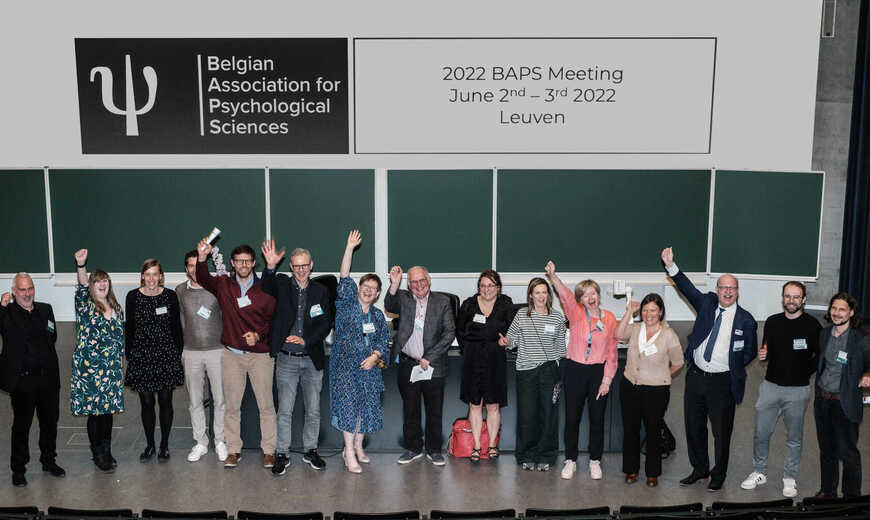On May 5 2023, the representatives of the MEC and non-MEC (psychological/human sciences ethics committees; see list below) of Belgium met for a plenary meeting and agreed on the following guidelines regarding the processing of human research projects by the respective ethics committees. Note that these recommendations reflect a MINIMAL consensus of type of projects that can be and are commonly assessed by non-MEC (i.e., mainly psychological/human sciences committees) in the context of the law of 7 May 2004 on experiments on human beings . Given differences in local procedures and interpretations of the law, the list of type of projects assessed by specific non-MEC can be broader, with or without additional counter-validation by a MEC. Please also note that this text contains general recommendations that do not impede on specific local agreements between MEC and non-MEC
- The specific aim of projects assessed by non-MEC, i.e. psychological/human sciences ethics committees, is to advance our knowledge about psychological phenomena and theories (‘psychology’ is understood here in a very broad sense, and includes research on language and (ortho)pedagogy).
- These projects are fundamental research projects with no immediate interventional aim, mainly (but not necessarily exclusively) conducted in samples drawn from the general adult or children population, and not involving sensitive issues (such as reference to traumatic experiences).
- These projects do not fall under the law of 7 May 2004 (relating to experiments on humans, with the definition: “Elke op de menselijke persoon uitgevoerde proef, studie of onderzoek met het oog op de ontwikkeling van kennis eigen aan de uitoefening van de gezondheidszorgberoepen” – “Essai, étude ou investigation menée sur la personne humaine qui a pour objectif le développement des connaissances propres à l’exercice des professions de soins de santé tel que visé à l’arrêté royal n° 78 du 10 novembre 1967 relatif à l’exercice des professions de soins de santé”) and its extensions (laws of 4 April 2014 and 4 May 2015 on the profession of clinical psychology and its explicit assimilation with a health profession), in which case an evaluation by a recognized MEC is necessary.
Non-exhaustive list of types of research projects which can be evaluated by non-MEC:
- Research involving administration of questionnaires pertaining to general cognitive, emotional, social, behavioral, educational and/or professional factors/situations (e.g., association between personality dimensions and stress in life/at work; association between psychological dimensions and job satisfaction; impact of professional environment/dimensions on psychological well-being)
- Research involving experimental manipulations of psychological variables (language, perception, memory, learning processes, executive control, attention, arousal, motivation, mood, anxiety, cooperation, identification processes, thought processes, social cohesion, etc....) in participants from the general population and which does not involve sensitive issues such as traumatic experiences (e.g.: the impact of massed versus distributed learning procedures for stimuli on subsequent memory for these stimuli; the impact of specific leadership dimensions on the nature of social interactions in a group of participants; the impact of a specific personal history [socio-economic level, type of parenting ...] on specific types of cognitive, linguistic or social representations or on psychological adjustment)
- Research involving school/educational settings, with the aim to determine optimal learning conditions and pedagogical methods
- Research on forensic aspects (impact of imprisonment on specific social/cognitive dimensions; psychological dimensions leading to rule-breaking behavior; etc...)
- Research involving qualitative approaches as semi structured interview, interpretative phenomenological analysis, thematic analysis, grounded theory methodology (given that no sensitive issues such as traumatic experiences are addressed)
- Research involving cognitive/psychological training of cognitive functions and psychological skills in non-clinical populations
The following committees and their representatives endorse this statement:
- KULeuven - Sociaal-Maatschappelijke Ethische Commissie
- KULeuven - Ethics Committee Research UZ Leuven
- Thomas More - Interne Ethische Commissie TP (Toegepaste Psychologie)
- UCLouvain - Commission d’Éthique de l’Institut de Recherche en Sciences Psychologiques
- UCLouvain - Cliniques Universitaires Saint-Luc Comité d’Ethique Hospitalo-facultaire
- UGent - Ethische Commissie van de Faculteit Psychologie en Pedagogische Wetenschappen van de Universiteit Gent
- UGent - UZGent Commissie voor Medische Ethiek
- ULB - Comité d’Avis Ethique de la Faculté des Sciences Psychologiques et de l'Education
- ULB - Comité d'Ethique Erasme-ULB
- ULiège - Comité d’Ethique de la Faculté de Psychologie, Logopédie et des Sciences de L’Education
- ULiège - Comité d’Ethique Hospitalo-facultaire Universitaire de Liège
- UMons - Comité d’éthique de la Faculté de Psychologie et des Sciences de l’Éducation
- VUB - UZBrussels Commissie voor Medische Ethiek
Note: The representatives of the different committees were directly involved in the discussion and/or followed the written exchanges that led to this consensus statement


